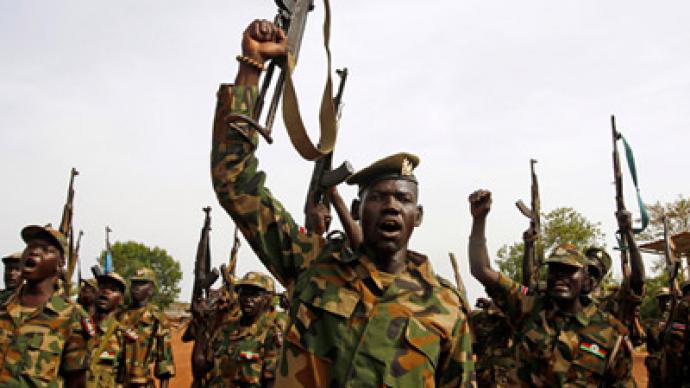Israel was behind the bombing of a military factory that killed two people, claims Sudanese Information Minister Ahmed Bilal Osman. Now, the Arab North African state is threatening to respond in kind.
"We think Israel did the bombing," Osman told a news conference, adding that Sudan reserves “the right to react at a place and time we choose." He also told reporters that his government may take the issue up with the United Nations Security Council. The minister said four planes were involved in the attack at the Yarmouk military manufacturing facility in south Khartoum, and claimed evidence recovered at the scene points to Israel’s involvement.The Yarmouk complex was built in 1996, and is one of two known state-owned weapons manufacturing facilities in the Sudanese capital.Residents from the area told local newspapers that they saw planes flying overhead just before the explosion. The blast blew roofs off houses, shattered windows and set nearby trees ablaze. Several people suffered from smoke exposure. Thick smoke blackened the sky over the complex, and firefighters fought the blaze for hours.It's not the first time Sudanese officials have blamed such an incident on Israel.One person was killed when a car blew up on the country's Red Sea coast in May, about a year after Sudan blamed Israel for an air strike on a vehicle in the same area. Witnesses to the May incident said they heard a big blast that set the car ablaze and left two holes in the ground.In January 2009, foreign aircraft struck a truck convoy reportedly laden with weapons in the country’s east, killing dozens. The shipment was rumored to be headed for Palestinian militants in the Gaza Strip, though Sudanese parliamentarians denied the claims.Osman told the news conference that his country was certain the previous attacks were ordered by the Israeli government. “The main purpose is to frustrate our military capabilities and stop any development there and ultimately weaken our national sovereignty,” he said.Israel, as is its policy, has neither admitted nor denied carrying out the attack.Robert Naiman, the policy director form 'Just Foreign Policy', told RT that even though Sudan is threatening to retaliate, it will not do so immediately, and will first try to resolve the issue diplomatically. "The first thing I expect Sudan to do – what Sudan is already doing, according to local news reports, is to reach out to regional institutions and urge the Security Council to condemn the attack. They're talking to the Arab League, they're presenting their evidence that this was indeed an Israeli attack, of which some evidence has been reported….I think in the short run, the threat of actual military retaliation from the Sudanese is rhetorical."Khartoum is seeking the removal of United States sanctions imposed in 1997 over support for international terrorism, its human rights record and other concerns.In 1998, US cruise missiles bombed a Khartoum pharmaceutical factory suspected of links to al-Qaeda in the wake of the terrorist group's bombings of American embassies in Kenya and Tanzania that killed 224 people.

